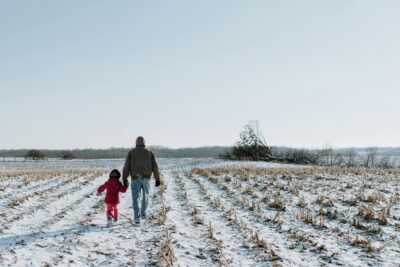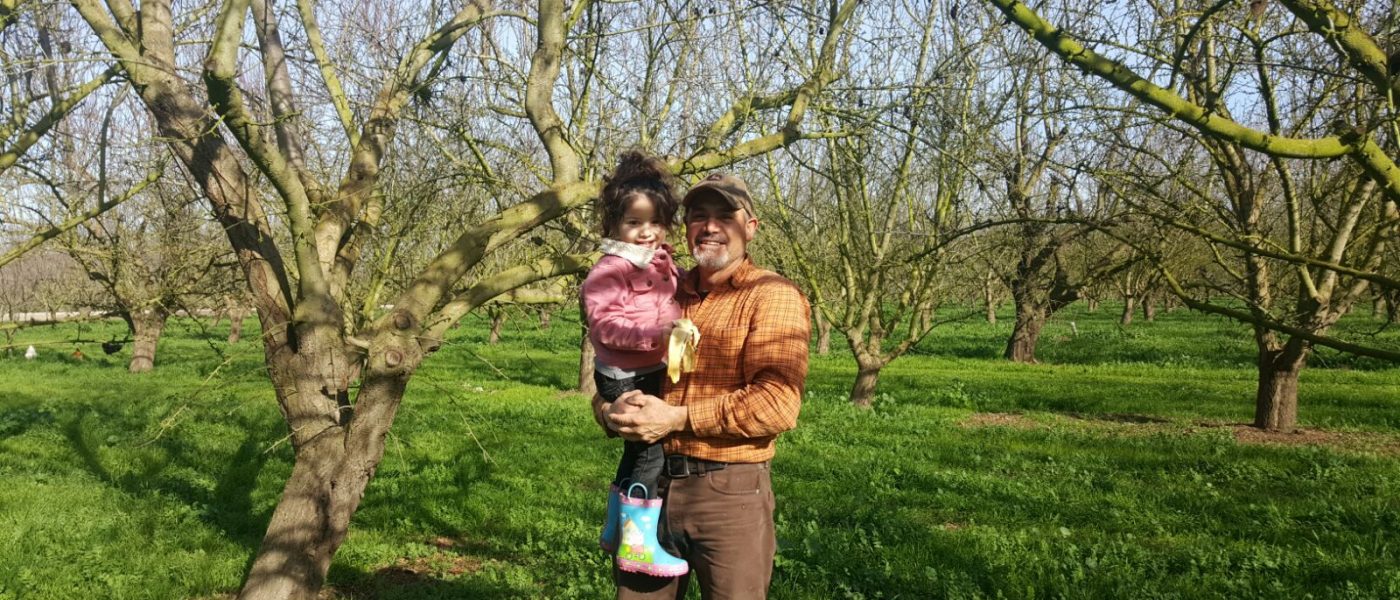Farm Aid partners with organizations all over the country to work towards our mission of creating a family farm-centered system of agriculture in America. Since our first concert in 1985, we’ve granted over $24 million to more than 300 organizations, creating a strong network of allies to keep family farmers on the land. Each year, grantees report back on what they’ve accomplished.
This post features a few stories from our grantees who are supporting organic production practices, and who are focusing their efforts on healthy soils.
We’ve condensed and edited each statement for clarity, but the following are our grantees’ own stories in their words. We hope you’ll be as inspired as we were by the uplifting work that’s happening all over our country.
CalCAN
The California Climate and Agriculture Network (CalCAN) received a Taking Action to Change the System grant from Farm Aid. This grant helped to further their work with California’s Healthy Soils Program, which was established by a CalCAN-sponsored bill and uses cap-and-trade revenue to provide grants to farmers and ranchers who adopt management practices that reduce greenhouse gas emissions and increase carbon sequestration. So far, more than 110 farmers and ranchers throughout the state have received grants totaling $6.5 million. After its funding was zeroed out last year, CalCAN used traditional lobbying and organized partners in the fight to restore it in Fiscal Year 2018-19. Ultimately, their efforts were successful in doubling its original allocation to $15 million.
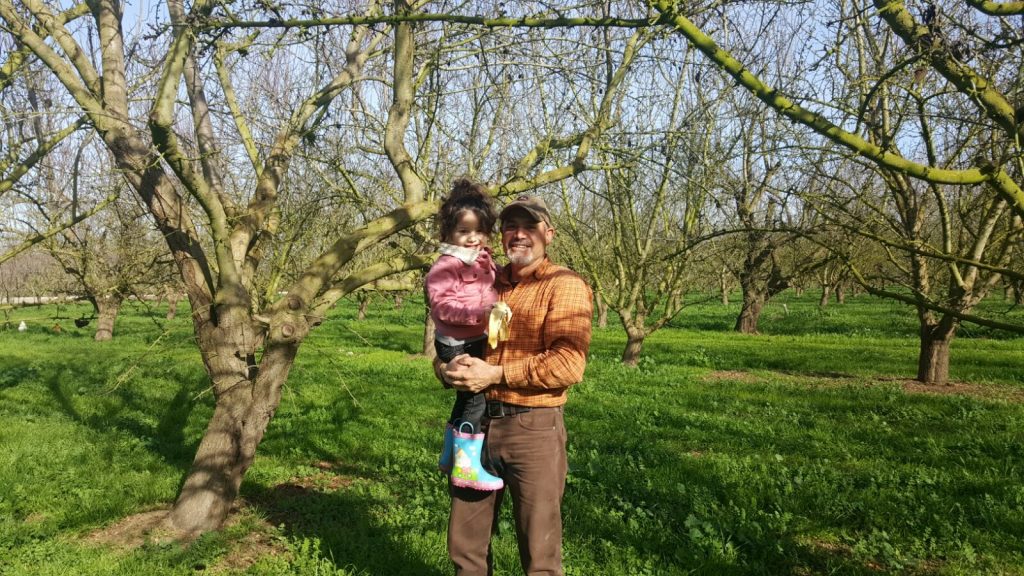
José Robles and his granddaughter in the Robles Farm almond orchards in Modesto, CA.
José Robles lives next to his almond orchards in Modesto, California, which he has farmed since 2005. Due to degraded soil, his almond yields declined and he lost a block of trees to soil-borne pests called nematodes. He discovered that because nematodes thrive in poor soil, improving soil health by applying mulch and compost eliminated the pests as well as the need to fumigate with pesticides that would have further degraded his soil quality by killing both helpful and harmful soil microorganisms.
José also noticed that healthier soils work like a sponge, holding more water and supporting more productive trees. José was awarded a CalCAN Healthy Soils grant in 2018 to apply compost and plant cover crops (non-commercial crops used to improve soil health) as well as a hedgerow to attract insects and improve orchard pollination.
When asked about the benefits of his Healthy Soils grant, José replied, “The most immediate benefit we get is to our health. Now, we can pick nuts right from the trees without worrying about getting sick from pesticides.”
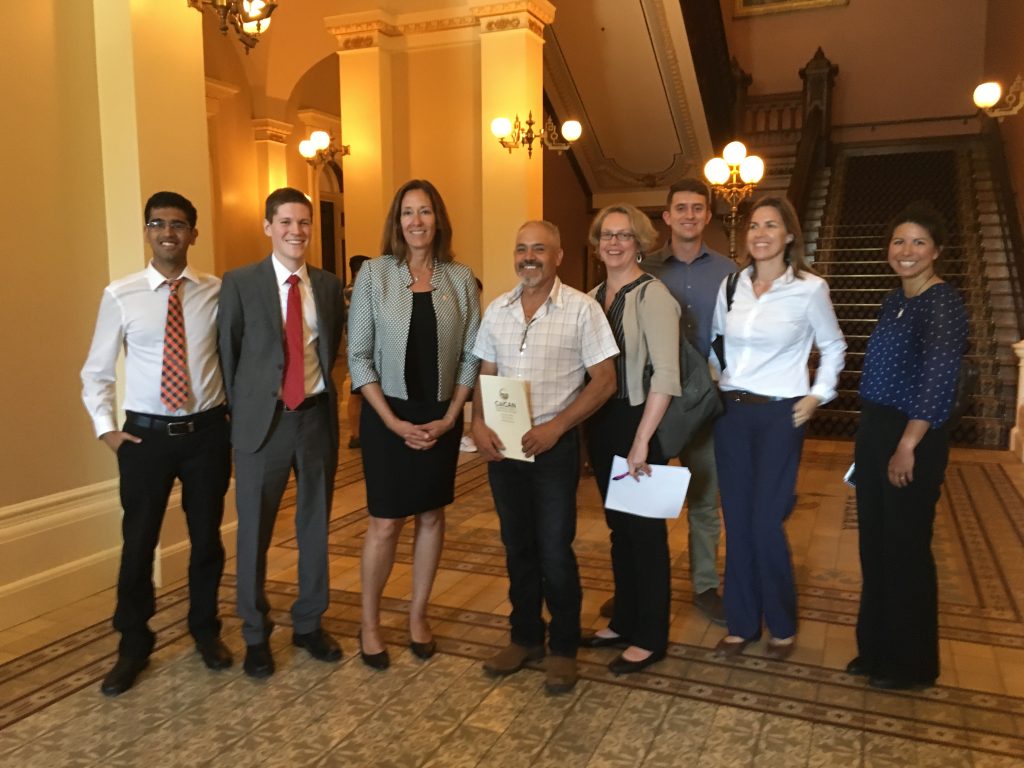
Pictured: Assembly member Jacqui Irwin and Farmer José Robles pose with CalCAN staff and partners after the California Senate Agriculture Committee voted to approve AB 2377, a CalCAN-sponsored bill to improve access to the state’s Climate Smart Agriculture grant programs for farmers and ranchers of different scales, operation types, geographies, and demographics. From left to right: Poojan Thakrar, Brian Shobe, Asm. Jacqui Irwin, José Robles, Jeanne Merrill, Noah Lakritz, Kara Heckert, Lauren Lum. Photo: Amy Winzer.
José recently joined CalCAN at the state Capitol to testify in support of a CalCAN-sponsored bill that would fund technical assistance for growers applying to California’s Climate Smart Agriculture programs.
In his testimony, José said, “Thanks to that technical assistance, I received a Healthy Soils grant to install a hedgerow and apply compost and cover crops for the next 3 years. These practices will improve the health of my soil and my trees, save water, attract beneficial insects, and ultimately increase my profits.”
After José’s testimony, the California Senate Agriculture Committee passed the bill with a bipartisan, unanimous 4-0 vote. CalCAN, along with farmers like José and other partners throughout the state, will continue to advocate for the bill’s passage into law so that a diversity of farmers, including small and medium-scale farmers, beginning farmers and farmers of color, have access to Climate Smart Agriculture investments in California.
Midwest Organic and Sustainable Education Service
The Midwest Organic and Sustainable Education Service, or MOSES, received a Helping Farmers Thrive grant to support their Organic Farmer-to-Farmer Mentoring Program and their Ask a Specialist helpline.
At the beginning of 2018, MOSES paired 30 mentors with 33 mentees in the Upper-Midwest. They focused on farmers working in diverse vegetables, organic grains and beef, berries, soil management, pastured pork, organic weed management, organic certification, organic chickens and turkeys, flowers and herbs.
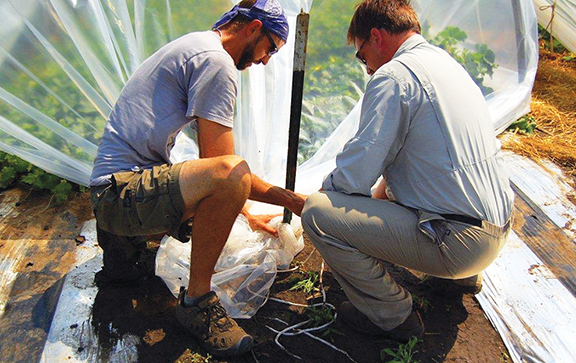
Mentor and mentee in the field. Photo: MOSES
Dave Bishop, a mentor, explained, “I believe that mentoring is an invaluable resource for beginning or transitioning farmers. Having someone to call with a question, discuss a strategy, or develop a plan when the need arises cannot be replaced by formal training experiences.”
And a mentee, Kelly Lagman, said the program helped her “in so many ways, it’s almost impossible to narrow down… [My mentor] Casey Dahl’s long-term, thoughtful planning approach and his practical experience in all facets of sustainable agriculture (annual vegetables, perennial orchards, pastured livestock) gave me the confidence and tools to implement several new ventures.”
Additionally, MOSES’ Ask a Specialist helpline has fielded 500 farmers calls. These calls are generally from people seeking information about organic production and certification. The organization is specifically skilled at answering questions that have difficult answers like: “When should I look for a market for my crop during organic transition?” and “I want to buy a sprayer that has been used for conventional use. Can I use it on my organic crop?”
In one such case, an experienced organic apple farmer from Waconia, MN, called the helpline about fungal issues in his orchard. He was seeing cedar apple rust and frogeye spot throughout the Frostbite and Honeycrisp apple trees on his farm and was looking for advice on potential controls for these diseases that would follow the National Organic Program’s rules and guidelines. This farmer did his due diligence ahead of time by contacting the apple breeder from the University of Minnesota as well as other experienced growers in the community but sought out MOSES’ help as another key support and source of sound advice and information.
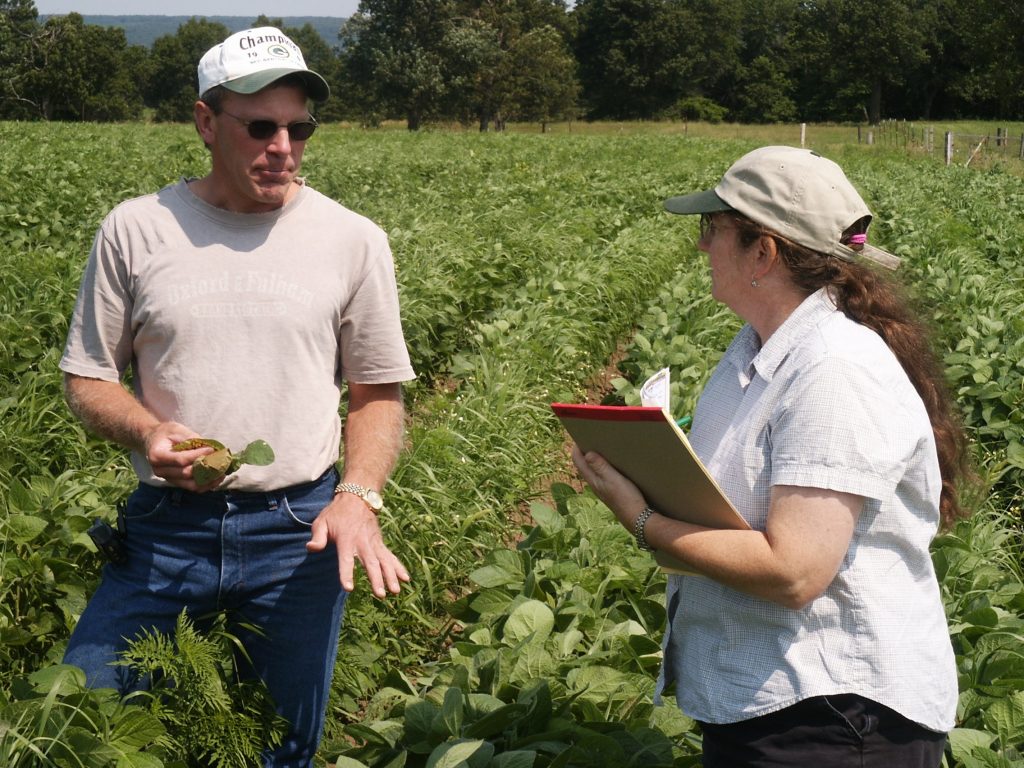
Photo: MOSES
MOSES Staff Organic Specialist Matt Leavitt spoke to this farmer, gaining detailed understanding of the disease in question, how his farm was laid out, the varieties he was having specific issues with, and control methods attempted. Based on that conversation, Matt researched the two diseases in question to gain a more thorough understanding of its progression, signs and symptoms. He then combed through documented research and posed the grower’s question to other veteran organic farmers as well.
Through careful vetting of university research that may fit the grower’s situation, in addition to corroborating information from authors and educators in the MOSES support network, Matt was able to pass on management information to the grower to aid in disease control in his orchard. Cedar Apple Rust in particular used to be a rare occurrence in the Upper-Midwest, but is quickly becoming more prevalent in the north due to the changing climate. In cases like these, MOSES aids growers with critical support for new and emerging production challenges and strengthens the organic community through thoughtful and properly vetted information sharing.
In 2015, Chris Koller, a newly-certified, organic grower from Le Sueur, sought help from MOSES about transitioning to organic practices. Since then, the Kollers have volunteered at the annual MOSES Organic Farming Conference, been paired with an experienced organic grain farmer mentor through their farmer-to-farmer mentorship program, and continued to seek help from the Ask a Specialist helpline.
In one of these calls, Chris needed help determining the optimum way to set his rotary hoe. He had performed the field operation a day before and ended up covering his 1-2’’ corn with a half inch of soil and was wondering if the corn would grow back from having that much soil covering it. Through a Beginning Farmer and Rancher Development Program agreement, MOSES had recently hired Dave, an experienced organic grain grower in Illinois to answer specific questions related to organic grain farming. Matt connected Chris directly with Dave to get his question answered. Here’s Dave’s response after consulting with Chris:
Hi Matt,
I gave Chris a call – like my other guest today, he’s a young “next gen” farmer trying to figure it all out, bumping heads with dad, and dealing with the inevitable ohmygodtheresweedsinthebeans syndrome. As to his question – a two inch corn plant that’s completely covered up will not come back. If a little green is visible and the plant can photosynthesize, it will recover.
I love talking with young farmers like these! I understand where they’re coming from and the pressure not to be the “generation that lost the farm.” I suspect that title may end up belonging to those who keep doing the same old things and hoping for different results.
Farmers calling are very grateful for the knowledge and research MOSES Organic Specialists are able to provide in situations that may mean the difference between success and failure in organic production.
Learn more about our Grant Program